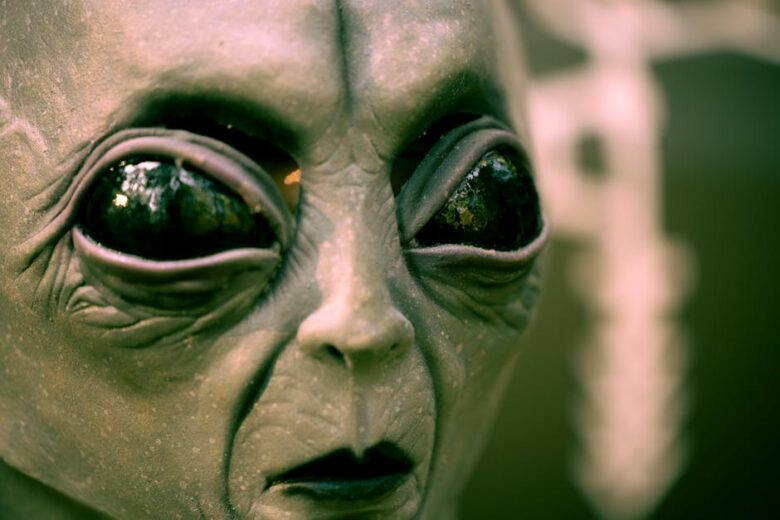How to Critically Assess Alien Encounter Narratives
Alien encounters have fascinated humanity for decades, weaving themselves into the fabric of pop culture and scientific inquiry alike. From UFO sightings to alien abductions, these narratives spark curiosity and skepticism. But how does one critically assess such stories? In this blog post, we will explore methods to evaluate the credibility and significance of alien encounter narratives. Let’s embark on this extraterrestrial journey with an open yet discerning mind.
Table of Contents
1. Understanding the Nature of Alien Encounter Narratives
2. Evaluating Sources and Credibility
3. Analyzing Evidence and Testimonies
4. Considering Psychological and Sociological Factors
5. The Role of Media and Technology
6. Conclusion
7. FAQs
Understanding the Nature of Alien Encounter Narratives
Alien encounter narratives can range from fleeting sightings of unidentified flying objects (UFOs) to detailed personal accounts of abductions. These stories often blend elements of the unknown with vivid personal experiences, making them both intriguing and controversial. Understanding the nature of these narratives is the first step in assessing their validity. They often reflect a complex interplay of fear, wonder, and the human desire to explore the unknown.
Evaluating Sources and Credibility
When assessing alien encounter stories, the credibility of the sources is paramount. Consider the background of the individuals or organizations sharing the narratives. Are they reputable? Do they have a history of reliable reporting? Look for corroboration from multiple independent sources. Peer-reviewed journals, established news outlets, and reports from credible UFO research organizations can provide more reliable information than anecdotal accounts found on questionable websites.
Analyzing Evidence and Testimonies
The strength of any narrative lies in the evidence and testimonies supporting it. Scrutinize the evidence presented, whether it’s photographs, videos, or physical traces. Are the images clear and free from obvious manipulations? Is there scientific analysis available? Personal testimonies, while powerful, should be considered alongside corroborating evidence. Cross-examine different accounts for consistency and factual accuracy. Remember, extraordinary claims require extraordinary evidence.
Considering Psychological and Sociological Factors
Human psychology and societal influences play significant roles in alien encounter narratives. Psychological factors, such as sleep paralysis, hallucinations, or cognitive biases, can contribute to personal experiences of alien encounters. Sociological influences, including cultural mythology and media portrayal of extraterrestrial life, can shape public perception and individual experiences. Be aware of these factors when evaluating narratives, as they can provide alternate explanations for seemingly unexplainable events.
The Role of Media and Technology
Modern technology and media have transformed how alien encounter stories are shared and perceived. The internet allows for rapid dissemination and amplification of these narratives, while digital tools enable both authentic documentation and sophisticated hoaxes. Be critical of the role technology plays in shaping these stories. Does the media source have a history of sensationalism? Are there signs of digital manipulation in the evidence? Questioning these aspects can help discern fact from fiction.
Conclusion
Critically assessing alien encounter narratives requires a balanced approach, blending open-minded curiosity with rigorous skepticism. By evaluating sources, analyzing evidence, considering psychological and sociological factors, and understanding the role of media and technology, we can better navigate the complex landscape of these otherworldly tales. Whether you’re a believer, a skeptic, or somewhere in between, the quest for truth in alien encounters remains a captivating journey. 🚀
FAQs
Q: What should I do if I witness an alien encounter?
A: Document your experience as thoroughly as possible, including the time, location, and any visual or auditory details. Seek corroboration from other witnesses and report your encounter to credible UFO research organizations.
Q: Are there any scientific studies on alien encounters?
A: While mainstream science remains skeptical, some studies explore the psychological and sociological aspects of alien encounter narratives. Organizations like SETI (Search for Extraterrestrial Intelligence) focus on scientific methods to search for extraterrestrial life.
Q: How can I differentiate between credible and non-credible UFO sightings?
A: Look for sightings reported by multiple witnesses, supported by physical evidence, and documented by reputable sources. Be wary of stories lacking corroboration or originating from dubious platforms.
Looking for a side hustle
Check out one of the best around atm
